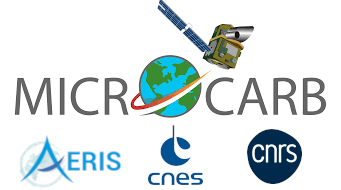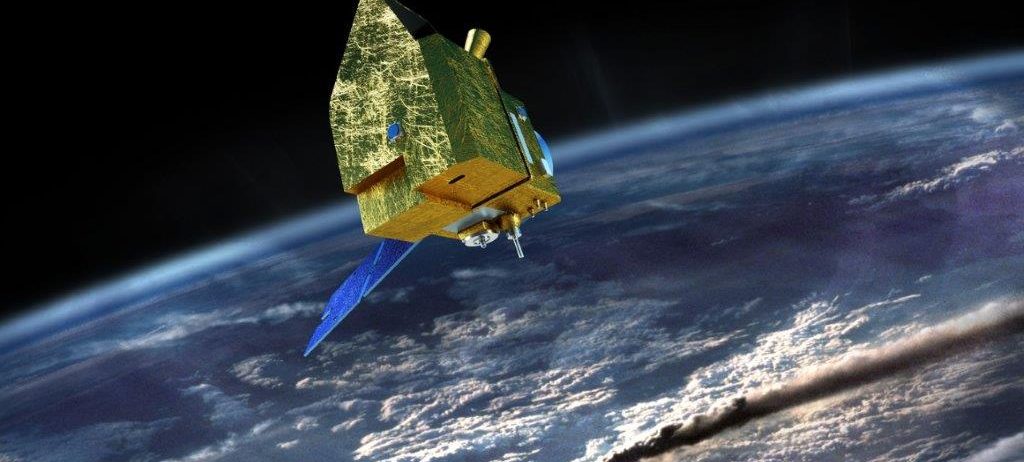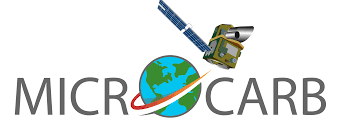Microcarb takes a deep breath
The Microcarb satellite completed its thermal vacuum testing phase in the UK. This is a major milestone that probed its ability to withstand the extreme conditions that it will encounter once in orbit. This phase followed a string of mechanical tests performed on the instrument after it had been coupled to its platform in December 2022 by Thales Alenia Space.
On the 2nd of October, the vacuum tank closed its door at the Rutherford Appleton Laboratory (RAL) in Harwell, England. Inside was the satellite put in a configuration close to flight mode. A 24/7 continuous monitoring was then set up for a fortnight by teams belonging to four partners (RAL Space, Thales Alenia Space, CNES and Airbus). About 40 people were involved overall.

The aim of these vacuum tests was to ensure that the satellite behaves as expected in thermal vacuum conditions and to check the interface between the instrument and the platform. In particular, attention was paid to the control of heaters responsible for maintaining the components within the target temperature range to ensure safe transitions. CNES will then go over the collected data in order to confirm the satellite qualification for space environmental conditions and potentially fine-tune its thermal models.
Further tests will be carried out before the satellite is prepared for storage in December 2023, pending a launch opportunity, and after it comes out. Final steps before launch will include the integration of solar panels and pyrotechnics.
Courtesy of CNES. See CNES’ article here (in French)








